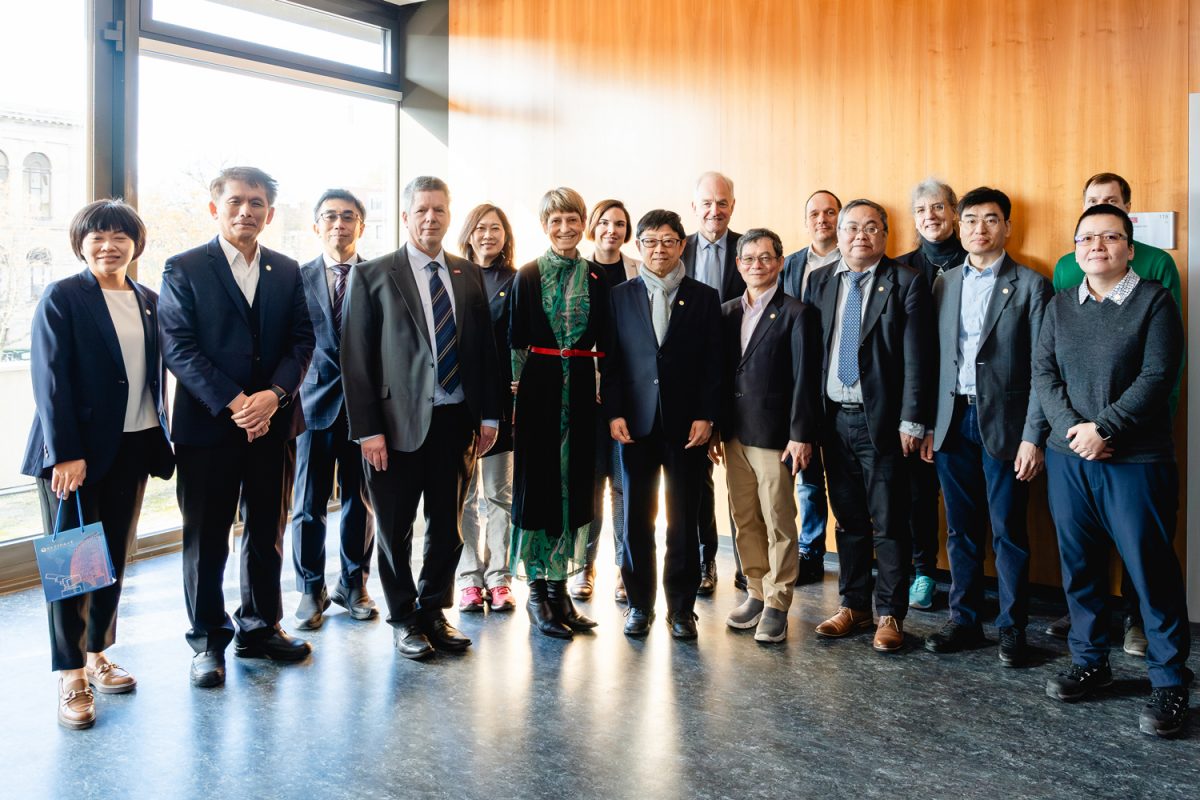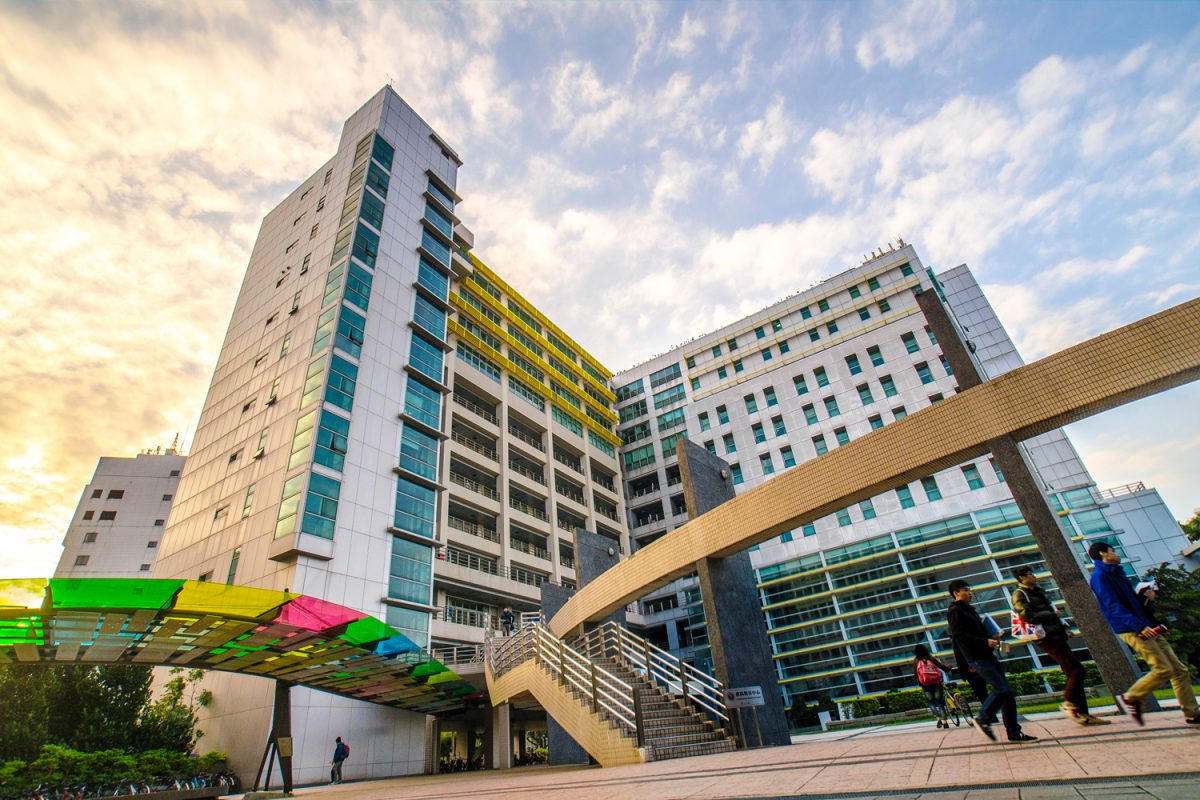High-ranking delegation from the National Taiwan University of Science and Technology visited TU Braunschweig Joint seed funding call open until 31 December
Last Friday, TU Braunschweig welcomed a nine-member delegation from the National Taiwan University of Science and Technology (Taiwan Tech).
The delegation led by President Professor Jia-Yush Jen visited various facilities at TU Braunschweig and exchanged ideas with the responsible researchers in order to initiate new joint projects. The programme included guided tours of the Automotive and the Aeronautics Research Centres Niedersachsen, the Battery Lab Factory, the Open Hybrid Lab Factory, the Laboratory of Emerging Nanometrology and the Center of Pharmaceutical Engineering.

The guests met with TU President Angela Ittel and Vice Presidents Arno Kwade and Peter Hecker. Photo: Simone Fürst/TU Braunschweig
In addition, possibilities for strengthening cooperation between the two universities were discussed at a meeting with TU President Angela Ittel and Vice Presidents Arno Kwade and Peter Hecker.
”The National Taiwan University of Science and Technology is a highly attractive partner for us. All researchers of TU Braunschweig are invited to participate and expand our collaboration. We would like to establish the cooperation across the entire university. Today’s visit and the recently announced joint seed funding call are important steps in this direction,” emphasises TU President Angela Ittel.
“Internationalization has always been the focus of Taiwan Tech’s development. We are proud of our strong ties with excellent partner universities, like TU Braunschweig, and are committed to aspiring toward a higher degree of collaboration in research and teaching. “, says Taiwan Tech President Jia-Yush Jen.
Student exchange and BMBF-funded research project
Since 2008, there has been a student exchange programme between Taiwan Tech and TU Braunschweig, which has been formalised in a cooperation agreement. A more intensive exchange between the International Offices of the two universities had been established shortly beforehand at a conference in the USA. At the same time, joint research projects developed: In the BMBF-funded projects “LiBEST and LiBEST2”, Professor Arno Kwade, Head of the Institute of Particle Technology at TU Braunschweig, has been researching the improved performance of batteries together with scientists from Taiwan University since 2017. The research focuses on the semi-metal silicon, which is to be used as an anode material for lithium-ion batteries. Other partners in the project are MEET, the Battery Research Centre at the University of Münster and the Fraunhofer Institute for Material and Beam Technology. “We are looking forward to continuing our close collaboration. The third phase of our research cooperation has just started and we are now focussing on polymer-based solid-state batteries as a promising new generation of batteries. In addition to lithium, we also want to use silicon as an anode material,” explains Prof Arno Kwade, Vice President for Technology Transfer and Innovation.
A guided tour of Braunschweig rounded off the delegation’s visit.
About the National Taiwan University of Science and Technology
The National Taiwan University of Science and Technology was founded on 1 August 1974 as the National Taiwan Institute of Technology (NTIT). In 1997, the NTIT received the official status of a university and changed its name to “National Taiwan University of Science and Technology”, also known as Taiwan Tech. Today, the university consists of seven faculties in the fields of engineering, electrical and computer engineering, management, design, humanities, social sciences and applied sciences and the college of industry-academia innovation. Of the 11,600 students, around 1,500 are international students.
The main campus of Taiwan Tech is centrally located in the university district of Taipei City. Branch campuses are located in Tu-Cheng, Keelung, Gong-Guan and Chupei. The university currently offers 40 English-language degree programmes and has set itself the goal of further expanding its English-language courses. Taiwan Tech has more than 300 partner institutions on four continents, with a focus on Europe and Southeast Asia.

